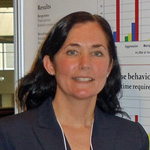Most therapy is about offering insight. The general idea is that if you can look at your behavior differently, understand why you may be doing what you're doing and how it affects other people, you can change. This works with people who are distressed by their own behavior or their situation. It doesn't work with individuals who have character disorders, because they are not distressed. Dr. George Simon teaches therapists a more effective approach to working with disordered individuals. He'll be presenting this approach in a Lovefraud Continuing Education webinar. Character Disturbances and Disorders Part 1: Key differences between neurosis and character disturbance in nature and …
Why traditional therapy doesn’t work with disordered peopleRead More







